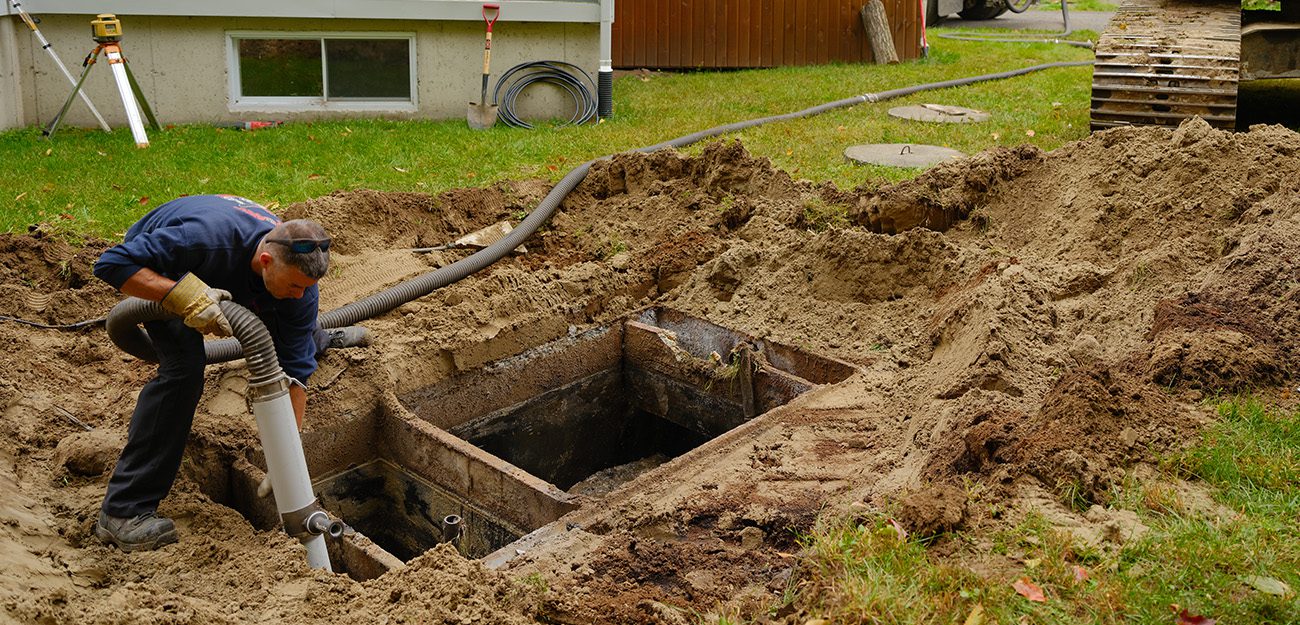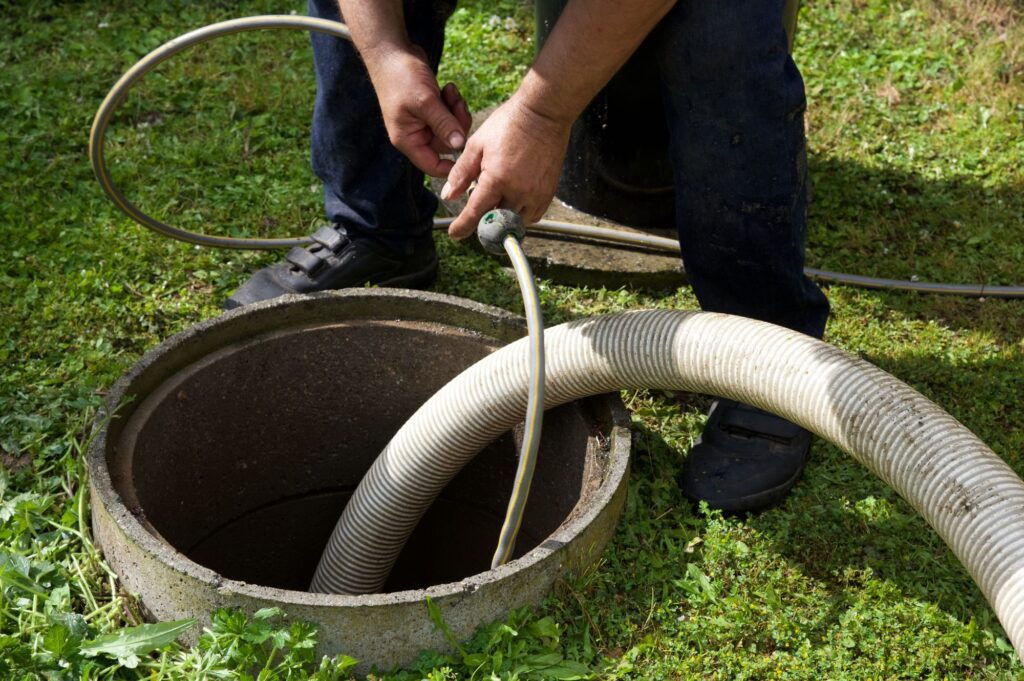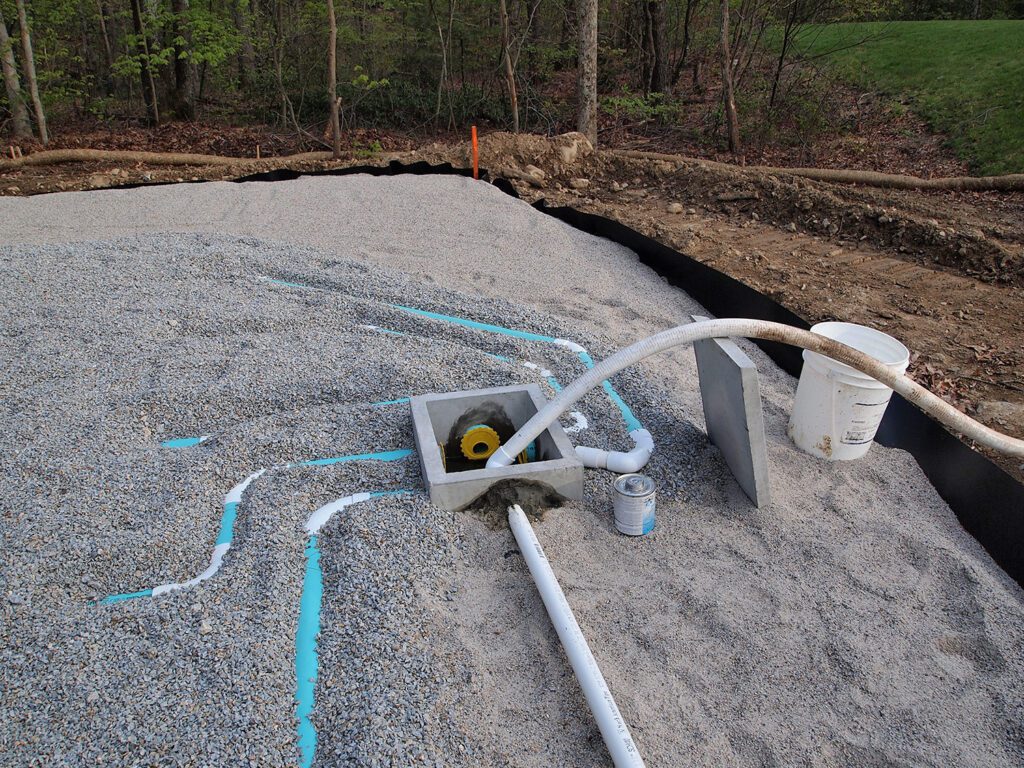Winter in Canada, especially in regions like Brampton, Mississauga in the Greater Toronto Area (GTA), brings unique challenges for homeowners with septic systems. Freezing temperatures, heavy snowfall, and increased indoor water usage can put significant stress on your system, leading to potential breakdowns and costly repairs. Understanding common winter septic issues and taking proactive steps can help you avoid major headaches. Here’s what you need to know.

Common Winter Septic System Problems & Prevention Tips
Frozen Pipes and Septic Components
Extreme cold can freeze pipes and septic tanks, causing blockages that may lead to backups or even ruptures. If your system isn’t draining properly, or you hear gurgling sounds from your plumbing, it could indicate ice buildup.
Prevention Tips:
- Keep your system active, regular water use prevents stagnation and ice formation.
- Install a small drainage hole in your plumbing to allow excess water to drain out instead of freezing.
- Before heading on vacation, have your tank pumped to reduce the risk of freezing while you’re away.
- Leave your grass longer (3-5 inches) before winter to provide natural insulation for your septic system.
- Consider adding additional septic system insulation to prevent deep frost penetration.
Septic Field Damage from Heavy Loads
Placing heavy objects such as vehicles, trailers, or large equipment over your septic field can compact the soil, break pipes, and force frost deeper into the ground, causing serious damage.
Prevention Tips:
- Keep the area above your septic field clear of heavy items.
- Avoid plowing snow directly over the field, as packed snow can drive cold temperatures deeper.
- Mark the location of your septic field to prevent accidental damage during snow removal.

Overuse & Overload During Winter
With more time spent indoors and guests visiting over the holidays, septic systems often experience higher-than-usual water usage. This can overwhelm the system, leading to slow drainage or backups.
Prevention Tips:
- Spread out water use, schedule showers at different times and avoid running multiple laundry loads in a row.
- Educate guests about what can and cannot be flushed (no wipes, grease, or hygiene products).
- If hosting large gatherings, consider pumping your tank in advance.
- Monitor water usage and look for signs of slow drainage, which could indicate system strain.
Leaks, Cracks & Structural Damage
Minor cracks in pipes or the septic tank can worsen with fluctuating winter temperatures. These leaks not only compromise the system but can also lead to contamination of nearby water sources.
Prevention Tips:
- Have your septic system inspected regularly, especially before winter.
- Repair or replace any cracked pipes to prevent worsening damage.
- Check for shifting ground or erosion around your septic system, which could signal potential damage.
Unpleasant Odours & Pooling Water
If you notice foul smells near your home or see pooling water around your drain field, it may signal a full tank, frozen pipes, or a clogged system.
Prevention Tips:
- Keep vents clear of ice and snow.
- If you see soggy patches or unusually green grass over your drain field, have a professional check for leaks.
- Address any sudden septic tank odours, as they may indicate a developing issue.

Stay Ahead of Septic Issues this Winter with Lifetime Building Services
The best way to prevent septic system failures in Brampton, Mississauga, and other cold regions of Ontario, including the Greater Toronto Area (GTA), is through regular maintenance and timely inspections.
Don’t wait until an emergency strikes, book a septic repair or inspection or repair today with Lifetime Building Services! Our expert team ensures your system is winter-ready, preventing costly repairs and keeping your home safe. Contact us now for consultation!
